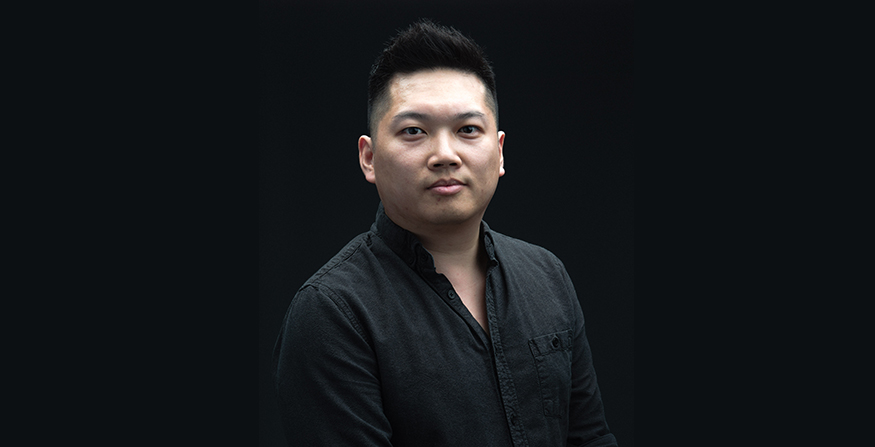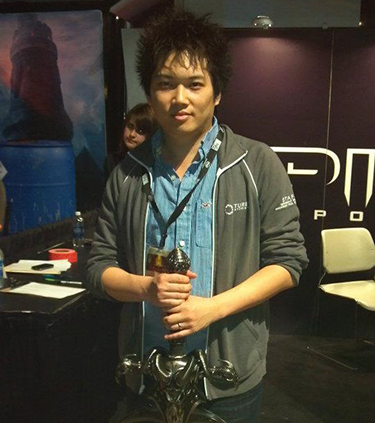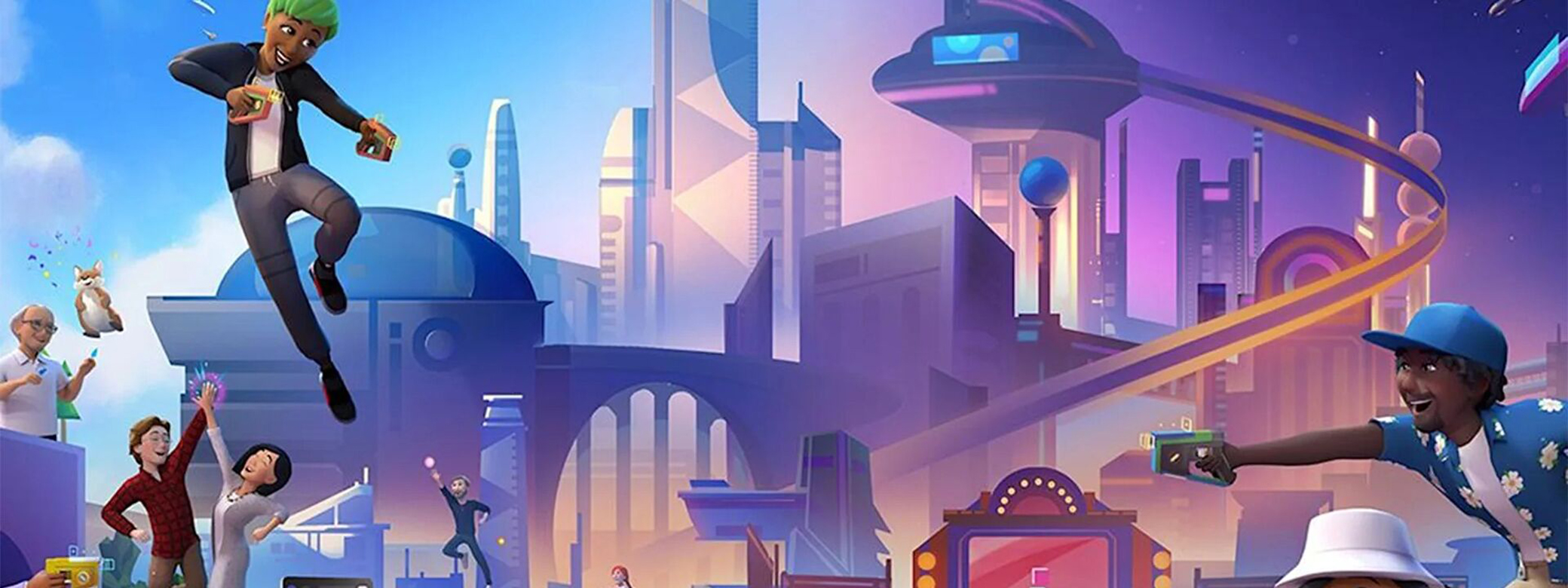
Jeff Lin spent childhood weekends playing video games with friends. Not for a few hours or half a day, but all weekend. His parents allowed this under one condition: he had to complete his extracurricular activities and elementary school homework first.
“Every Friday, my friends and I would rush down to Blockbuster when it opened and rent the newest games,” Lin recalls. “I’d get all my work done, and then at 6 am on Saturday morning, we would get up and start playing. We sometimes played until 3 am.”
Three decades later, Lin is still immersed in gaming, now as game director and product design director at Horizon Metaverse @ Meta. There were stumbles and detours along the way, which Lin sees as fortuitous. His unconventional path — including earning a PhD in psychology at the UW in 2012 — has proven to be one of his strengths in the gaming industry.
From Research to Gaming
Lest anyone think playing video games 24/7 is what led Lin to a successful career, he offers a reality check. As an undergraduate at the University of British Columbia (UBC), Lin often chose video games over attending class and was eventually forced to leave school and complete his degree through distance learning. Along the way, he met UBC psychology professor James Enns, who studies attention in human vision. After taking several of Enns’ classes and doing well, Lin approached the professor about working in his research lab.
“He offered me a job as an RA in his lab,” Lin says. “I still don’t know why he did that. He says he just knew I was going to become more than some university dropout.”
When you’re designing a game, it’s all about creating a feeling or an emotion in a person, so understanding human behavior is extremely helpful.
In fact, it was Enns who encouraged Lin to go to graduate school. He pointed out that Lin was already doing graduate-level work in his lab and should take the next step. That led Lin to the UW, a school his parents and his broader Taiwanese immigrant community had always respected. Admittedly, his parents focused on him going to the UW School of Medicine, hoping Lin would become a medical doctor. Instead, he pursued a doctorate in psychology.
Lin worked with professors Geoffrey Boynton and Scott Murray in the UW Department of Psychology, studying visual perception — specifically, what captures one’s attention and why. He was in his third year of graduate school, looking at postdoctoral opportunities, when a visiting speaker came to the department. The speaker worked at Valve, a gaming company, and shared how he used psychology research in gaming.
“That was a big, lucky moment for me,” Lin says of that talk. “Before that, I didn’t realize it was possible to go from research to gaming as a job.”
Improving Games Through Psychology
Lin quickly took action. He emailed CEOs and presidents of more than two dozen gaming companies, offering to apply his research to improving their games. Two companies responded; one was Valve. Lin collaborated with them while at the UW.

An important focus of Lin’s research with Valve was measuring whether a gaming experience was engaging and fun. Ask a gamer trying a new game that question and the answer will be subjective, potentially skewed by factors unrelated to the game itself. For a more objective analysis, researchers studied biometric signals like changes in heart rate, skin conductance, and pupil dilation.
Then came the tricky part. “Biometrics can suggest that something is fun or not, but the actual changes you have to make to a game to improve it are not straightforward,” Lin says. “What you do with that data is wide open. That research led me to actively switch into game design.”
Since earning his PhD, Lin has worked on games at Riot Games, Magic Leap, Facebook Reality Labs, and Horizon. “Every time I changed companies, it was because things had stabilized,” he says. “We weren’t solving the hardest problems anymore. I wanted the next big challenge at that point.”
Lin is now in a leadership role at Horizon, managing hundreds of people as they develop new games. But he still spends a portion of his time directly involved with game design. Being so hands-on is unusual at his leadership level, but he is committed to carving out that time because game design is so compelling — and fun — for him.
A (Virtual) World Where Anything is Possible
Since his pivot into game design, Lin has continued to find his psychology background helpful. He notes that an increasing number of game designers have psychology degrees, and for good reason. “When you’re designing a game, it’s all about creating a feeling or an emotion in a person,” he says, “so understanding human behavior is extremely helpful.”
Lin finds that having team members from a range of disciplines — not just psychology, but also economics and architecture and other fields — leads to more interesting products. He sees that change across the industry, which a decade ago was largely the realm of computer scientists.
The games themselves are also constantly evolving. Lin now works on “sandbox” games, also known as UGC (user-generated content) games, which enable users to create their own games within the larger game, or to create spaces where people with similar interests can interact as a community. Users have created bowling alleys, a standup comedy club, LGBTQ gathering spaces, and many more experiences in these games. “Any idea you might have, you can try to bring it to life,” Lin says.
Looking to the future, Lin believes that gaming will increasingly blend with all other aspects of life. He offers the example of one popular game for children, Roblox. In the past few years — aided in part by the COVID pandemic — a growing number of children have hosted their birthday parties in Roblox, inviting friends to hang out digitally instead of in person, with virtual toys or clothes as their birthday gifts.
“I don’t think anyone ten years ago would have imagined virtual birthday parties as the norm,” Lin says. “But it’s very normal to kids these days to think about their digital life and their real life as just being a blend.”
That’s something grade-school Jeff Lin would have loved.
More Stories

Finding Love at the UW
They met and fell in love as UW students. Here, 10 alumni couples share how they met, their favorite spots on campus, and what the UW still means to them.

AI in the Classroom? For Faculty, It's Complicated
Three College of Arts & Sciences professors discuss the impact of AI on their teaching and on student learning. The consensus? It’s complicated.

What Students Really Think about AI
Arts & Sciences weigh in on their own use of AI and what they see as the benefits and drawbacks of AI use in undergraduate education more broadly.
